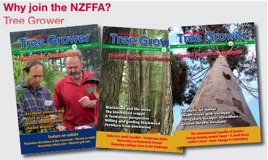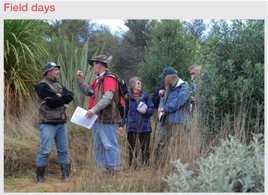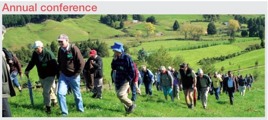Biofuel from biomass – a future opportunity?
Rick Swan, New Zealand Tree Grower November 2006.
Apart from a brief respite in the price of oil in recent months, the price has generally been escalating. There is reason to believe that peak oil production has been reached, and that in general the price of oil will continue to escalate. Both economic and environmental factors are driving the world-wide search for alternatives to fossil fuels, and biofuels are one promising option.
Ethanol – a petrol alternative
Ethanol stands out ahead of most other options as an alternative to petrol. It is a good candidate for an alternative fuel for New Zealand’s motor vehicles. Most of our cars could run on a petrol-ethanol blend. Initially only a small proportion, say 5% to 10%, of the mix would be ethanol, but as time went on vehicle engines could be replaced or adapted to run on increasing concentrations of ethanol until petrol was largely phased out.
The wastes from New Zealand’s vast forestry resources, and from agricultural crops such as corn, could be used to make bio- ethanol. Ethanol is widely used as a car fuel in Brazil, where it is made from sugar in sugar cane plantations. Brazil is making huge savings by producing locally made ethanol and imports a decreasing amount of expensive oil.
Cars are being manufactured called FFVs or flexible fuel vehicles. These can run on either petrol or a fuel mix containing 85% ethanol called E85. By producing its own ethanol as fuel, Brazil has strengthened its economy by reducing the trade deficit, and also by increasing the productivity of agriculture, the secondary industries that follow, as well as creating many jobs for its own people.
Manufacturing ethanol
The process of making ethanol from plants is pretty much the same as that for making whisky – fermenting plant sugars to make alcohol. Consequently those plants in which the sugars are freely available, such as sugar cane, sugar beet and grain will always have the advantage over materials such as wood, straw and most other plant residues.
The production of ethanol from plant sugars would require a change in our established pattern of agriculture in New Zealand. This may happen, but then there would be competition for the land between producing food and producing energy for vehicles.
Lignocellulosic materials such as woody biomass require an extra energy step requiring an enzyme or chemical process to break down the lignin and cellulose materials to sugar. Naturally, this is more expensive, and is called second generation ethanol production. The technology for making ethanol from wood is readily available and as the price of oil continues to rise, it is not a question of if, but when ethanol produced from wood will become economic. Although this would cost more than producing ethanol from sugar-containing plants, it would not disrupt our existing pattern of agriculture.
Processing waste wood
It has been estimated that the amount of timber wasted in a rotation of pine can be as high as 35%. Since the amount of waste in commercial forests in New Zealand is particularly great at harvesting time, this would be the best time to collect and process the waste timber to manufacture ethanol. It could also be possible to do this at the time of a production thinning at mid-rotation for a crop of pine. This could all be accomplished by having a wood chipper on site during harvest time, filling trucks which would then transport the chips to a local ethanol-producing plant.
Diesel alternatives
Some diesel alternatives could come from used cooking oils and other vegetable oils. This has recently been tested in New Zealand, with a car driving the length of the entire country with used oil from the food chain MacDonalds. A blend of diesel with small percentage of ethanol is also possible, and this has been tried overseas. It is called diesahol, and it is much cleaner burning than ordinary diesel. Although the technology exists, I am still not sure to what degree bio-diesel will solve New Zealand’s diesel supply problems.
The bigger picture
In New Zealand, a biofuel industry manufacturing ethanol and possibly later bio-diesel, has the potential to make our primary industries more efficient and profitable. It could create new secondary industries with the processing of fuel, create thousands of jobs in the primary and secondary industries and make our economy more robust.
There is also much discussion going on about climate change being caused greenhouse gases, especially carbon dioxide, released by burning fossil fuels. Carbon that was locked into hydrocarbons many millions of years ago is being released into the atmosphere as carbon dioxode.Biofuels such as ethanol and bio-diesel recycle the carbon between plants, which absorb carbon dioxide and vehicles which produce it. As such, bio-fuels do not release new carbon dioxide from old stored carbon in the Earth the way fossil fuels do. They merely recycle it.
Implications for farm foresters
So what does all this mean for the farm forester? It means that there may be more to your forest than just timber. In the future, your forest waste may be used to produce ethanol to run our cars. This may help the economics of softwood crops such as pine, which have experienced rather low prices in recent years.
When will this happen? I cannot say, but keep your ears and eyes open to news events, and form your own opinions. A recent report by the Royal Society of New Zealand suggests that New Zealand may prove to be one of the few countries that could be self-sufficient in producing its own vehicular fuels from biomass. Another recent report talks about the introduction of flexi-fuel vehicles into New Zealand. And while you are growing your trees it is very likely that you are also helping to mitigate climate change.
Rick Swan is a member of the Wellington Branch of the NZFFA, with a forest block near Reikorangi, Kapiti. He is also a private teacher.

 Farm Forestry New Zealand
Farm Forestry New Zealand

